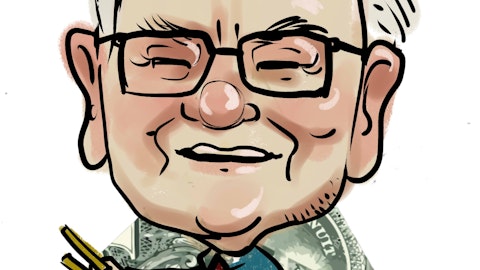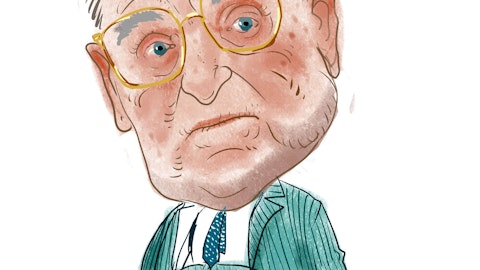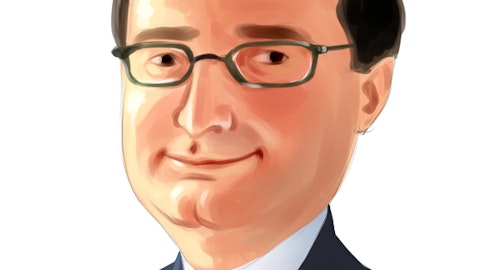Goldman Sachs Group Inc (NYSE:GS), one of the world’s leading investment banking and securities companies, is expected to grow revenue 7% in 2012, a rebound from the 26% decline in 2011. With signs that the economy might be stabilizing, client risk tolerance and trading volume has picked up, which has bolstered the demand for Goldman’s services.
During 2Q, the fund interest in Goldman was overwhelmingly positive, with the top five owners by shares all increasing their stakes. Boykin Curry was the top owner with over 2.5% of his firm’s 13F portfolio invested in Goldman, while D.E. Shaw upped his stake over 200% and Jim Simons took a new position of over 1 million shares.
Goldman does has stiff competition in the investment sector, including State Street Corporation (NYSE:STT), which has a strong asset management business and has also been building out its non-U.S. revenue stream, and now generates over 40% of revenues outside of the U.S. This has allowed the company to take advantage of some of the faster growing regions in Asia, including Japan, China and Malaysia. The top fund owner of State Street, Trian Partners, owned nearly 10 million shares at the end of 2Q, which made up almost 15% of the firm’s 2Q 13F portfolio—see why this tiger cub is behaving so bullishly.
JPMorgan Chase & Co. (NYSE:JPM), another key competitor, is one financial stock that hedge funds have been getting into quite heavily as of 2Q. The company posted strong quarterly results last week, but traded relatively flat on the news. The loss on the CIO portfolio was $449 million, but guidance puts the expected eventual loss between $800 million and $1.6 billion. Even with tough losses, the company has shown positive trends in its Tier 1 common ratio, which is up to 8.4% for 2Q versus 7.9% last quarter. The company projects that it will be able to boost its Tier 1 ratio to 9.5% by mid-2013. This is still below some of JPMorgan’s other competitors, such as State Street, which posted a 14% Tier 1 ratio last quarter, but solid nonetheless.
Morgan Stanley (NYSE:MS) expects to grow 2013 revenues with growth in sales and trading. Morgan has refocused its attention on increasing the reach its wealth management business, which accounts for 50% of revenues, and we believe that capturing net interest income from client assets in the wealth management business is a relatively low-risk business. Also, the completion of integration of Morgan Stanley Smith Barney is expected to widen operating margins beginning in 2013. Morgan Stanley boasted big names as top fund owners in 2Q, including Ken Fisher, Ken Heebner and Ken Griffin.
UBS AG (NYSE:UBS) expects revenue decline in 2012 due to poor investment banking performance and the continued overhang from the unauthorized trading loss. As the bank reduces its risk-weighted assets and attempts to restructure its investment banking division, it expects to see EPS down 15% year over year for 2012. The company has shown solid efforts in strengthening capital, posting a 17% Tier 1 ratio under Basel 2.5. Yet, we feel the company still faces a lot of uncertainty, and has missed earnings by more than 30% in each of the last three quarters. Of all the banks outlined, UBS saw the least amount of interest from funds in 2Q. Two top names that were shareholders were Jim Simons and Israel Englander, but both held only modest positions and were downsizing, by 77% and 44% respectively.
Of all the companies, Goldman is up the most year-to-date at 33%, and we believe this helps build our case that the stock is overvalued. S&P recently upgraded the company, increasing its target price to $125, but the company already trades around $120. S&P cites strong trading and underwriting, but notes that market trends remain weak.
Goldman trades at a premium to its peers at 18x earnings and 1x book value, while the peer averages come in at 13x and 0.8x. State Street, on the other hand, trades at the lowest P/E ratio and is expected to grow EPS 12% next year. We believe that State Street will have the most upside in the interim, as it has a solid capital position and more international growth opportunities.






